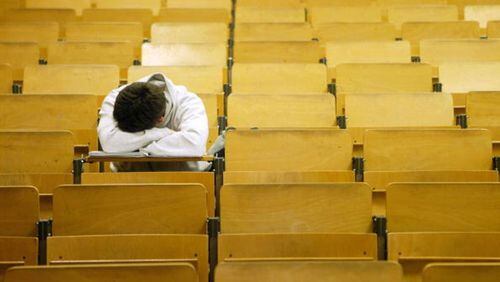Skipping out on a good night's rest can lead to some serious health issues. Sleep deprivation has been associated with high blood pressure, obesity and heart failure. But did you know it could also cause the brain to eat itself?
» RELATED: VIDEO: 6 tips to help you sleep better
Researchers at the Marche Polytechnic University in Italy conducted a study to determine how sleep loss affects our bodies. By studying the brains of mice, they found that the organ began breaking down a cell called astrocytes even more in the sleep-deprived critters.
Luckily, scientists determined that this may not be a bad thing. Astrocytes clean out worn-out cells and debris, and the cells most affected during the examination were larger and maturer.
"They are like old pieces of furniture, and so probably need more attention and cleaning," research leader Michele Bellesi told New Scientist.
» RELATED: 11 successful people who get by on hardly any sleep
But if the condition becomes chronic, scientists believe there is need to worry. They learned that microglial brain cells, which also get rid of damaged cells and debris, were more active in sleep-deprived mice, too.
"We already know that sustained microglial activation has been observed in Alzheimer's and other forms of neurodegeneration," Bellesi said.
People who receive less sleep may be more likely at risk for the disease, according to previous studies.
Although it's unclear whether or not getting more sleep could protect the brain, researchers plan to explore the topic further.
»RELATED: Power of a nap: Med students use sleep pods to research sleep deprivation







